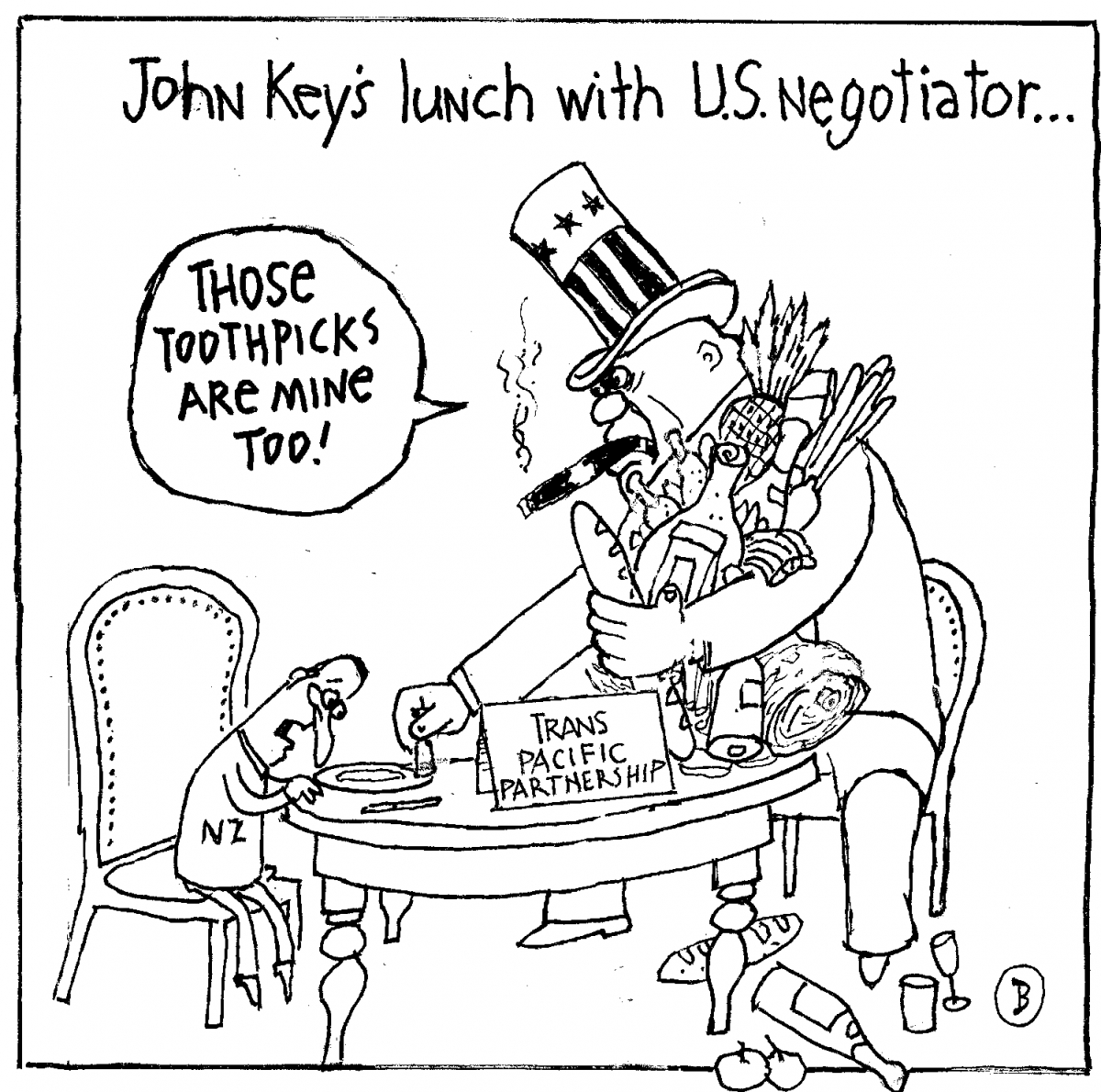
15. The ISDS provisions in the trade agreement allow foreign firms to bypass domestic court systems and directly sue governments for cash damages (our tax dollars) over alleged violations of their new rights before UN and World Bank tribunals staffed by private sector attorneys who rotate between serving as "judges" and fighting cases on behalf of corporations.
16. Under the TPPA the rules would not be limited to trade in services, but would limit how we can regulate foreign service firms operating here. This would result in a reduced ability for Australia to decide its own policies on health, energy, education, water, transportation and more. Even local land use and zoning policy is implicated.
17. The U.S. has proposed a new "Regulatory Coherence" chapter in the agreement that would require each signatory country to establish an agency to do cost-benefit analysis of existing and proposed regulations such as environmental legislation (this aligns with LNP policy – reduction of 'green tape').
18. In the United States and Canada the reality is that federal governments are often willing to "lose" these cases in order to discipline provincial, state or municipal governments that have adopted progressive social and environmental policies
19. The concept of "regulatory expropriation" has become an important part of the neoliberal or "free trade" agenda. It is well known that this agenda involves breaking down barriers to trade and investment, creating more freedom for corporations to pursue profits at any social or ecological cost. (this aligns with LNP policy and practice)
20. If an Abbott government signed off on these provisions in the TPPA, it could spell the end of Australia's Pharmaceutical Benefits Scheme (PBS) which makes medicines affordable for all Australians suffering serious illness, regardless of their income level ('The age of entitlement is over ' – Joe Hockey)
21. The TPPA provisions protecting copyright may allow for the criminalisation of some of your everyday use of the Internet through application of US copyright laws in Australia...
24. TPPA Investor-State Dispute Settlement provisions (ISDS) would give media conglomerates more power to fine you for Internet use, remove online content—including entire websites—and even terminate your access to the Internet, even make it a criminal offense to temporarily store files on a computer without authorisation.
25. These negotiations are held in strict secrecy because of the extreme bias towards increasing corporate power at the expense of democratic rights.
26. What we know at this stage about this trade agreement has come from handful of critically important leaks. As one observer noted, the reason for the intense secrecy is clear: "There are so many outrageous specific proposals that if people knew the details then the whole process would get derailed by widespread outrage."
27. A recent text leak from the TPPA negotiations revealed that the parties signed a special secrecy Memorandum of Understanding that forbids released of negotiating documents for four years after the Agreement is signed off by participating nations.
28. The Australian Labor Government announced in April that it will not agree to be bound to the investor-state regime in the TPPA. However negotiators from the United States have declared that all TPPA nations must submit to this regime
29. The current Australia Labor Government's rejection of the investor-state dispute settlement provisions is not only thwarting the ability of the TPPA negotiations to produce strong enforcement outcomes, it is also having a corrosive effect on the level of ambition and other key aspects of the TPPA negotiations. Nevertheless the Australian Chamber of Commerce and Industry (ACCI) has expressed deep concern about the Australian Labor government's position on this.
30. In the US, the powerful corporate lobby position on the Australian Labor Government's position is, quote: 'American companies should be able to side-step the Australian legal system in the event of certain legal disputes.... The US Chamber of Commerce wants US-domiciled companies to have the option of dealing with legal issues in courts outside Australia under the rules being hammered out for a new Pacific-wide trade agreement.'
31. Ideologically bound to support the market, Julie Bishop (current Opposition foreign Affairs spokesperson) has said the Coalition will 'prioritise' the signing of the agreement, including the ISDS provisions. Julie Bishop has criticised the Labor Government for delaying the agreement over the ISDS (corporate powers), pointing out that Labor is doing this for 'ideological reasons', and adding that, if elected, an Abbott Government will 'fast-track' the signing of the agreement

